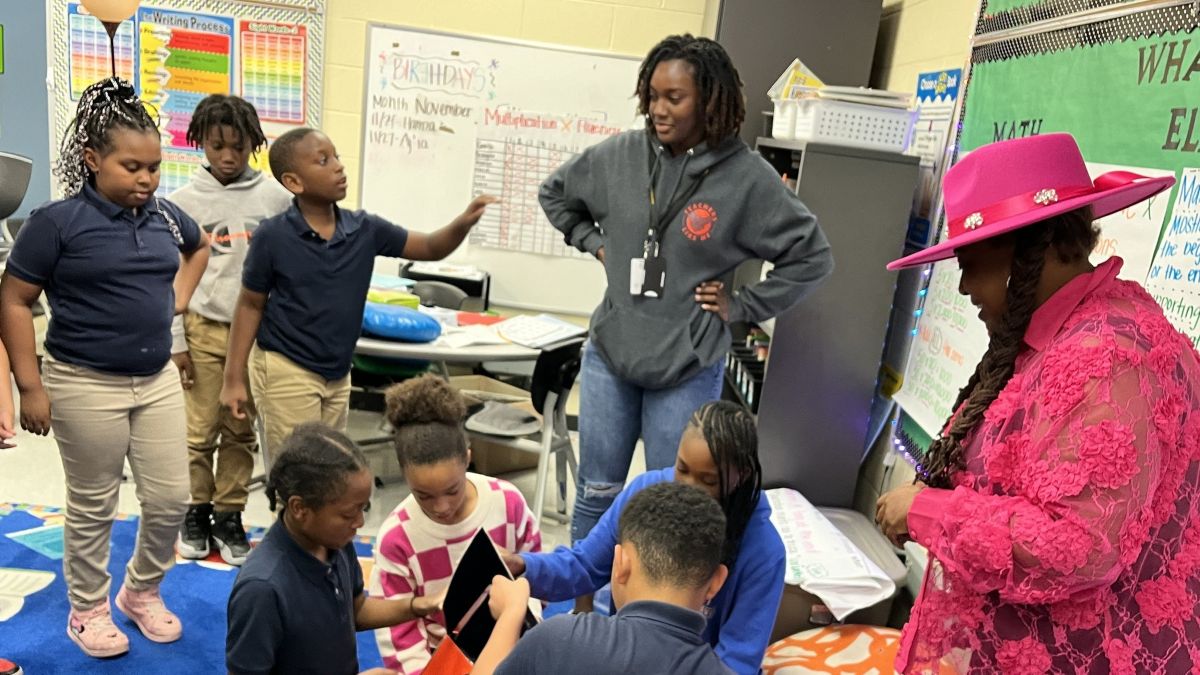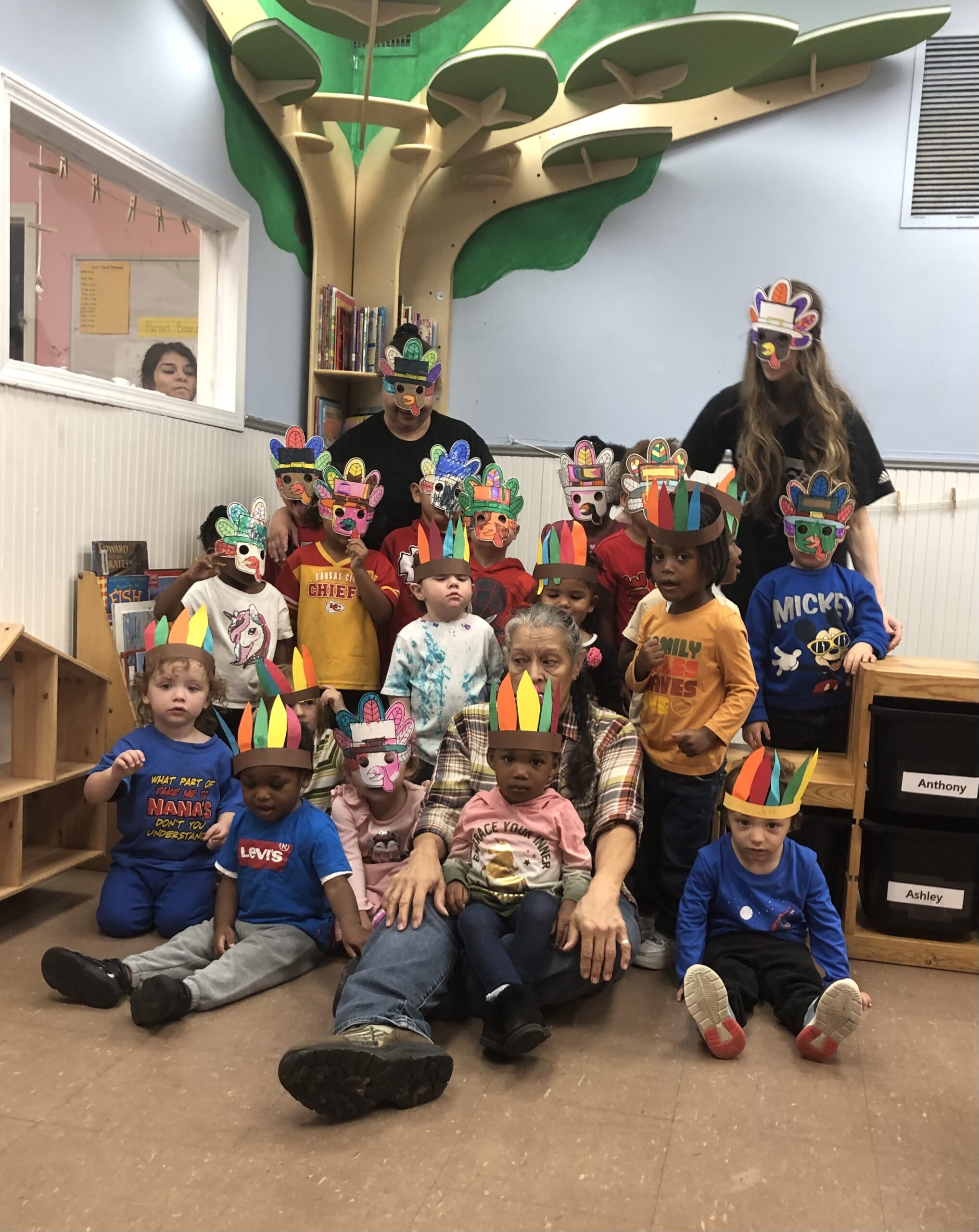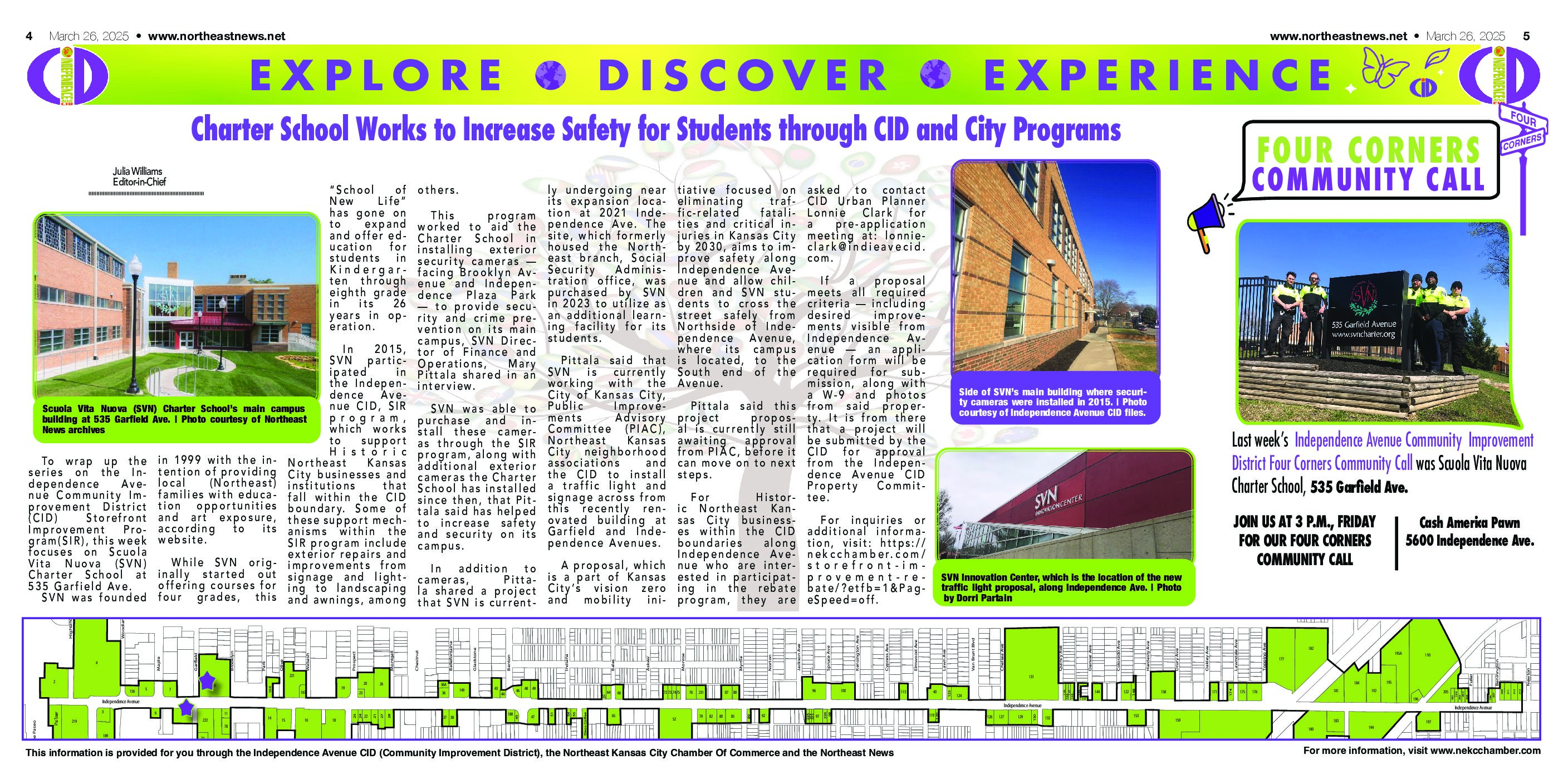By Abby Cambiano
Northeast News
Walking through DeLaSalle Education Center, visitors would see some unusual sights for a high school, such as students in the kitchen, a daycare and a carpentry workshop.
DeLaSalle Education Center (3737 Troost) is Missouri’s only alternative charter high school. The school’s mission is to provide an academically challenging education to youth who have been unsuccessful in traditional school settings.
“The alternative is in the way we approach education,” Keith Lewis, a communications representative, said. “We teach all the traditional courses, but a lot of our students have experienced trauma.”
Lewis said whether it is neighborhood violence, alcohol, drugs, incarceration of one more family members or violent deaths, “these are the toll that the urban core takes on a young person’s life.”
“DeLaSalle provides the wraparound support services from our Team of Care, therapists and counselors, who provide individual and group therapy to help them address and overcome those issues so that they can effectively learn,” Lewis said.
DeLaSalle opened in 1971 with 15 students. Today, of the 220 students, about one-third proceed to higher education, while two thirds join the workforce after graduation. The charter, which is sponsored by the University of Missouri – Kansas City, had a 92 percent graduation rate last year.
ProStart Culinary Arts program at DeLaSalle provides hands-on, real-life experience to students interested in the food industry. Through internships at local restaurants, students who have completed the introductory culinary arts class are able to gain hours toward a certification from the Department of Elementary and Secondary Education (DESE).
Junior Board is a city-wide program in conjunction with the Curry Family Foundation that acts like a student council at DeLaSalle. While other area middle and high schools have Junior Boards, DeLaSalle is the only urban core school that participates.
The Junior Board at DeLaSalle focuses on development of leadership skills by learning about the community and serving others through philanthropy, Lewis said.
DeLaSalle is working to expand the academic offerings to include carpentry and computer applications. While there are no specific details yet, Lewis said students can expect even more additions in the second semester. Last year was the first year that DeLaSalle taught Microsoft Office for the workplace.
“Outside of the classroom, not a lot of students have access to a computer. We identified that need and that disconnect,” Lewis said.
DeLaSalle offers a daycare to students with children, and last year 12 students utilized the daycare.
Lewis, who has worked in development at DeLaSalle for two years, said because of the special programs at DeLaSalle, the school has to fundraise half of its operating funds.
“More and more we’re finding that students who haven’t been traumatized are choosing DeLaSalle,” Lewis said. “It’s not just the students who have not found the right home in traditional schools.”
Lewis said DeLaSalle is becoming a “school of choice” because people hear about good experiences from family, friends and graduates.
“Many of our students come to us several years behind their peers in academic core courses, so we provide comprehensive, individualized instructional assistance to help them achieve their appropriate grade level in all courses,” Roxane Johnson, associate director of grants, said. “As a charter school, DeLaSalle welcomes any student residing within the boundaries of the Kansas City Public Schools that may benefit from our holistic approach to education that increases their academic success.”
Lori Peters, a 1997 DeLaSalle graduate, is returning to DeLaSalle to work in admissions this year.
“I’m actually just looking forward to helping students get enrolled into a school with teachers that just understand that they need more encouragement and help that what they were receiving at their last school,” Peters said. “Hopefully they’re receiving exactly what I needed when I came here 20 years ago.”
Peters turned to DeLaSalle as a single mom who had struggled in traditional high school.
“I hated school, if you can believe that, and I felt like the teachers didn’t understand me,” Peters, who is returning to school for her doctorate in August, said.
Growing up in poverty, Peters said it was a challenge to get to school each day, even before she gave birth to her daughter. DeLaSalle offered a daycare and smaller class sizes, and Peters said she would recommend DeLaSalle to any student who wants a different type of structure than in a traditional school.
“It was considered ‘the bad school’ 20 years ago … but now it is seen as a more positive, encouraging environment for students in all walks of life,” Peters said. “It offers different opportunities to experience a different type of learning environment.”



















